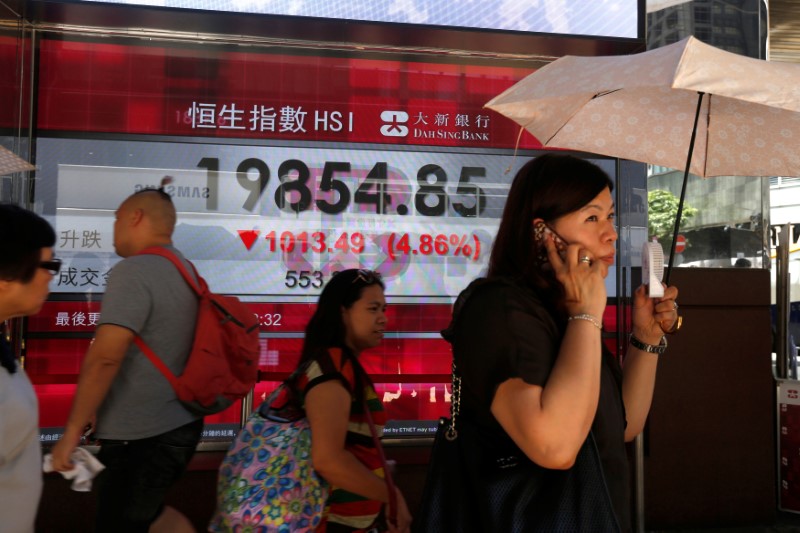Investing.com -- Hong Kong’s Hang Seng index entered bear market territory on Wednesday, with China-exposed stocks weighing the most as weak economic data from the mainland raised more doubts over a reopening-led recovery this year.
The Hang Seng index fell 2.5% by the afternoon break to a six-month low of 18,130.00 points, bringing its total losses to 25% from an intraday high of 22,700 points hit in late-January. A drop of 20% from recent peaks indicates a bear market.
Losses were broad-based barring a few heavyweight firms, and were largely skewed towards stocks with high exposure to China. Game developer NetEase (NASDAQ:NTES) Inc (HK:9999) fell 5.5% and was the worst performer on the Hang Seng, while Chinese property developer Country Garden Holdings (HK:2007) and food delivery app Meituan (HK:3690) lost 4.7% apiece.
Chinese stocks tumbled to six-month lows as data showed the country’s manufacturing sector shrank for a second consecutive month in May, and at a faster pace than the prior month.
With growth in overall business activity also slowing, investors questioned whether a post-COVID reopening recovery in China was running out of steam, given that April had also provided a slew of weak readings.
The manufacturing sector is a key growth engine for China, but has been struggling with slow local demand despite the lifting of COVID restrictions earlier this year.
Slowing overseas demand for Chinese goods, amid worsening global economic conditions, has also weighed heavily on the manufacturing sector.
This, coupled with slowing private investment in the country, has led to a reversal in sentiment over an economic recovery this year. The trend also bodes poorly for Hong Kong, given the city’s close economic reliance on the mainland.
A bulk of the Hang Seng’s heavyweight listings also consist of Chinese companies.
Losses in oil stocks also weighed on the Hang Seng on Wednesday, with majors CNOOC Ltd (HK:0883) and PetroChina Co Ltd (HK:0857) losing 5.2% and 4.5%, respectively. Oil prices tumbled around 4% on Tuesday amid growing concerns over a demand slowdown this year.
